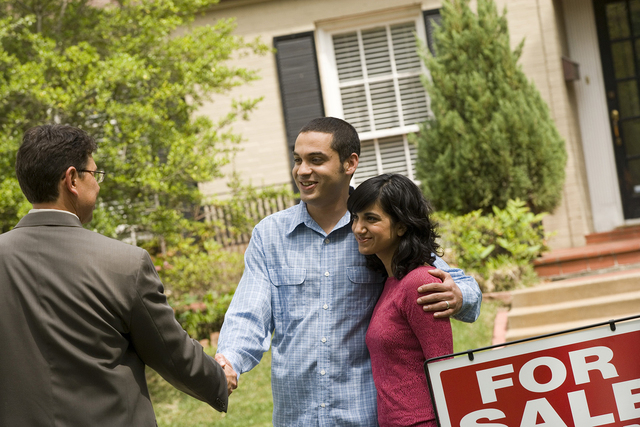Las Vegas seeing growth in low down-payment mortgages
More Las Vegans are slipping into homes on low down payments.
It may sound like 2006 all over again, but real estate experts say it’s different this time around.
Mortgages with down payments below 10 percent are definitely riskier. But they’re less of a gamble today, and some risk is needed if the market is to return to normal, observers say.
The share of Clark County borrowers making low down payments jumped to 36 percent in the first quarter, up from 31 percent a year earlier, a Thursday report from Irvine, Calif.-based research firm RealtyTrac said.
Overall down payments have fallen as a result: Clark County had the third-lowest down payment share in the nation, at an average of 13.3 percent. That was behind only Philadelphia County, at 12.6 percent, and Michigan’s Wayne County (Detroit), at 12 percent.
The local number was 14.9 percent a year ago. The traditional down payment on a conventional loan is 20 percent.
Nationally, 33 percent of borrowers had low down payments in the first quarter. The average down payment was 14.8 percent.
Borrowers can pay less upfront because of new lending guidelines, said RealtyTrac Vice President Daren Blomquist. Government loan backers Fannie Mae and Freddie Mac said in December they’d begin backing loans with 3 percent down. The Federal Housing Administration in January took half a percentage off its mortgage insurance premiums, cutting average borrowing costs by about $900 a year and making loans more affordable.
Low upfront payments generally reflect first-time homebuyer activity, because those buyers haven’t typically had time to save 20 percent.
But Bryan Kyle, owner-broker of First Serve Realty in Las Vegas, said looser requirements are attracting more boomerang buyers — people who lost homes to foreclosure or short sale.
Calls about low-down-payment loans have doubled since December, Kyle said.
“A couple of years ago, a lot of people thought they might rent forever,” Kyle said. “Some of them went through short sale or lost their job. But people are beginning to see the sun come out once again, and there are more opportunities for them to get back into the market.”
It’s natural to ask whether it’s a good idea to give loans with low down payments to borrowers with a history of mortgage trouble. Plus, long-term figures show a 25-year average foreclosure rate of 1.38 percent for federally backed loans, compared with 0.56 percent for conventional mortgages, Blomquist said. That higher rate is a risk most lenders find manageable, though, he added.
“To continue market momentum, the pool of buyers needs to be expanded beyond investors and cash-rich buyers to include people who may not have as much saved up but will still be good homeowners,” Blomquist said. “There is an amount of risk that is acceptable for the sake of opening up homeownership to a greater number of people.”
Federally backed loans come with relatively high qualification guidelines. Borrowers typically need a credit score of at least 620. Fannie Mae and Freddie Mac require homeownership counseling. Buyers must document income, assets and job status. Their debt, including home loan, can’t exceed 43 percent of income. The interest-only and option-adjustable-rate loans that set up the housing bubble are nowhere in sight.
About a third of Kyle’s clients end up not qualifying.
“Qualifying standards are more stringent than ever. They’re really looking at borrowers very closely,” Kyle said. Though Clark County’s down payments are already lower than the national average, there’s room for them to drop more, Blomquist said.






















